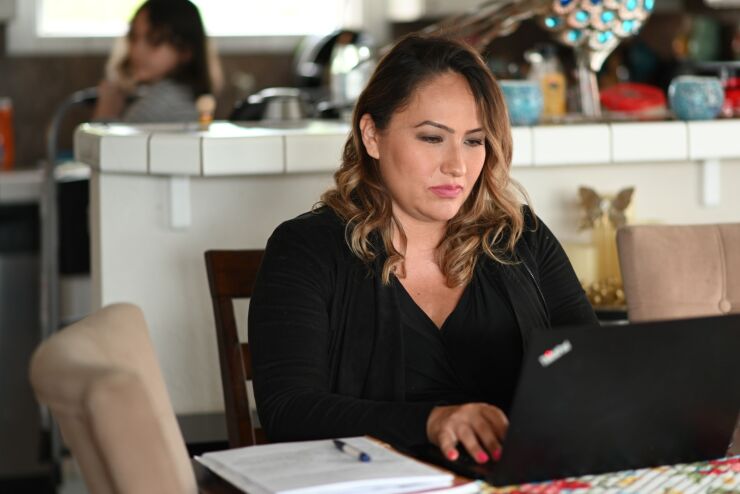Uncertain economic outlook and caregiving responsibilities are impacting the ability of women across all generations to save for their retirement, according to a new
Over two-thirds, 67%, of women investors who support children or aging parents responded that such responsibilities have impacted their careers, and 18% of respondents say that supporting children or parents has also prevented them from saving for their retirement. Across generations, 26% of women say they previously reduced work hours, 19% limited professional development opportunities, 18% used extended family or medical leave, 13% switched to part-time positions and 11% declined or delayed promotions.
"Our study sheds light on the financial challenges women of all ages are facing. Recent conditions of market uncertainty combined with the significant stress that family caregiving responsibilities are putting on women are certainly creating a challenging environment," said Amelia Dunlap, vice president of Nationwide retirement solutions marketing, in the press release. "But the concerns of women investors are not one-size-fits-all. We're seeing each generation of women process these challenges in different ways, creating opportunities for financial professionals to better serve clients in these groups."
Economic uncertainty and pessimism is increasing financial stress for women investors, as 42% of respondents say they believe inflation will increase in the next year and 73% are concerned with the possibility of a U.S. recession within the next year.
"It's understandable that women investors, who often serve as primary caretakers for their family, feel challenged by the current economic environment and the pressures of taking care of their loved ones," said Suzanne Ricklin, vice president of retirement solutions sales for Nationwide, in a statement. "Our data highlights an opportunity for women investors of all generations to seek guidance from advisors to turn their financial anxiety into proactive action in the form of a holistic plan for retirement. It's important for women to ask questions and be clear with their advisors about their concerns and goals. By confidently communicating their expectations and priorities, women can work with their advisors to address the risk of allowing near-term family obligations to jeopardize their long-term financial security."
The Nationwide survey highlights the challenges of work-life balance that women across all generations face in the workforce. Millennial women investors report they face more impacts to their careers than any other generation, as 55% who support children or aging parents say that caregiving responsibility led to frequent or occasional career or income disruptions in the last five years. Almost a quarter of Millennials, 22%, took a second job and 18% have credit card debt to help manage the financial pressure of caregiving.
Gen Z women are currently prioritizing more immediate financial responsibilities, rather than long-term planning like retirement savings, and 35% of Gen Z women say caring for a family member is a top financial commitment over the next year–more so than any generation.
Like Gen Z, many Gen X women, 40%, are more focused on paying down debts and loans over the next 12 months. This is impacting their ability to save for retirement, with 20% of Gen X women saying that they are significantly behind on their retirement savings goals and 34% saying that they feel behind but are working to catch up. Nearly half, 47%, of Gen X women who support children or aging parents say they have frequently or occasionally experienced career or income disruptions due to family caregiving commitments in the past five years.
Compared to other generational cohorts, Boomer women are the least likely to financially support their children or aging parents. Boomer women are at or close to retirement age, and 25% say that economic conditions in the past five years have delayed, altered or canceled their "dreams for retirement." Just over half, 51%, say that the norm of retiring at 65 does not apply to people like them: 35% of Boomer women expect to retire between 66 to 70 years of age, and 17% do not expect to retire by 70 years old.






